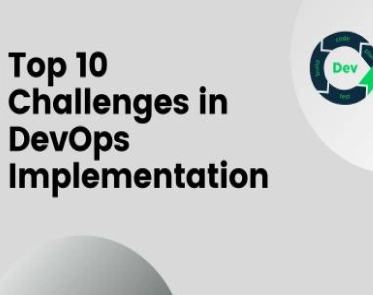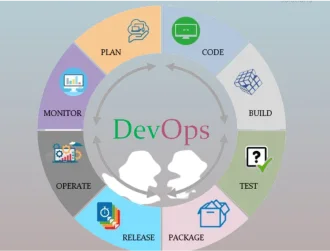The era of the full stack developer, proficient in client and server-side programming, is here. Developers who can adapt to new situations while displaying their knowledge are in high demand in today’s hyper-dynamic technology industry.
According to the U.S. Bureau of Labor and Statistics, developers will see job growth of 27 percent by 2024.
This depth of expertise is now necessary for creating contemporary apps that work consistently and reliably across a wide variety of devices. However, before delving deeper, we must explore these questions: What is full stack development? How does it function? What is the role of full stack development?
This blog post will address all of these questions and more. We’ll also highlight the most recent trends in mobile app development and show you why full stack application development is the way to go.
What is Full Stack Development?
To clarify what is full stack development, we must note that a full stack developer is like an orchestra’s conductor in that they can oversee every part of the project. If the developers are skilled experts in both the user interface (UI) and its underlying infrastructure, they are considered “full stack.”
Therefore, in full stack development, a profound knowledge of the front end (the interface) and the back end (databases and server-side logic) is essential. In the software development industry, developers with experience in every project stage are valuable assets.
Key Components of Full Stack Development
Some of the key components of full stack development include:
- Front-end development
The user interface (UI) is the part of software that people interact with most directly. What makes up the user interface includes things like the design, colors, fonts, buttons, forms, and navigation.
Full stack developers are familiar with HTML, CSS, and JavaScript since these languages form the backbone of front-end programming. They also have experience with front-end frameworks like React, Angular, and Vue.js, which allows them to design adaptable and user-friendly UIs for applications.
- Back-end development
While the front end handles the user interface, the back end handles the infrastructure. Back-end languages that a full stack app development company is comfortable with include Node.js, Python, Ruby, and PHP. They can create and manage databases, set up and configure servers, and code the program’s backend.
- Database management
Database Management is widely utilized to hold mission-critical data for software applications. A full stack developer has no learning curve when moving from a NoSQL database like MongoDB to a relational database like MySQL or PostgreSQL.
- Version control systems
Tools for collaborative development based on version control systems, such as Git, are crucial. Developers with knowledge of the whole software development lifecycle have an advantage in areas such as version control, code management, and team communication.
- Deployment and DevOps
One of the many tasks required in releasing an application is fine-tuning the server environment. Many infrastructure responsibilities, including server provisioning, deployment automation, and CI/CD pipeline management, fall within the purview of a full stack engineer because of their knowledge of DevOps concepts.
Full Stack Development Importance
Now that we have a working definition of full stack development, we can go on to discuss full stack development’s importance.
- Efficacy and flexibility
Due to their versatility, whole stack engineers are valuable at all project life cycle phases. Since fewer experts may be needed, this bodes well for cost savings. This flexibility is essential to the development process because it allows activities to be accomplished more quickly and with a better grasp of the project.
- Cost-effective
Hiring a full stack developer may be a more cost-effective choice for startups and small enterprises needing technical support. One “full stack” developer may take care of everything from the interface design to the server maintenance.
- Coordinating effortlessly
Those in the programming community proficient in all of the stack’s layers are called “full stack developers.” Because of their expertise in both front- and back-end systems, they work well with designers, UX/UI specialists, and other engineers. The final product will be more unified and expert-level if the app development company has more opportunities to communicate and collaborate.
- Adaptability to emerging technologies
New frameworks, libraries, and tools are continually being created and published in the modern tech environment. The full stack developers are the first to experiment with new tools. They can use modern resources to produce trustworthy software because of their versatility.
Mobile App Development Trends
While discussing the merits of full stack development, discussing the most current modern app development trends is crucial. Changes like these influence how apps develop and are used in today’s interconnected world.
- Progressive web apps
One possible explanation for progressive web apps or PWAs’ success is that they provide features often seen in native apps yet are accessed only via a web browser. Both web and native apps benefit from fast page loads, the ability to work without an internet connection, and push notifications. Developers skilled at creating client and server-side features are essential to the success of progressive web applications.
- AR and VR
Augmented and virtual reality technologies are enhancing the mobile app experience, particularly in the entertainment, academic, and business sectors. Successful augmented reality or virtual reality software development requires developers to have in-depth knowledge of the whole technology stack in modern development, from the lowest to the highest levels.
- AI and ML
Modern mobile applications use AI and ML to learn about their users’ interests and tailor their experience accordingly. Access to full stack engineers fluent in data management, server-side logic, and API connection is essential for implementing AI/ML capabilities.
Conclusion
Today’s fast-growing app development industry places a greater premium on full stack application development since it allows the production of more versatile, efficient, and distinctive apps. Engineers who are “full stack,” or fluent in both front- and back-end technologies, are essential for delivering the seamless digital experiences that users have grown to expect. Businesses of all sizes may benefit from their openness to new technologies, low prices, and speedy prototyping.
As businesses look for more adaptable and efficient options, full stack development will become more important in creating the next generation of groundbreaking apps. Whether you’re just starting out as a developer or have been in the field for a while, adopting the complete stack is a step in the right direction toward a set of skills that will serve you well in the future.









